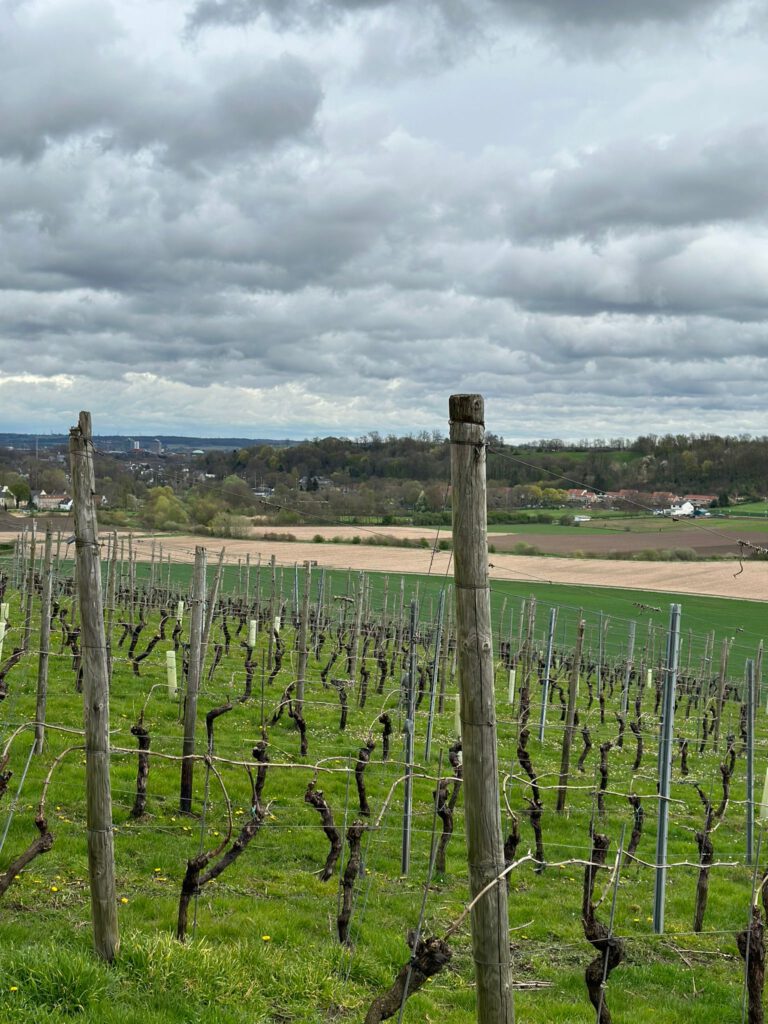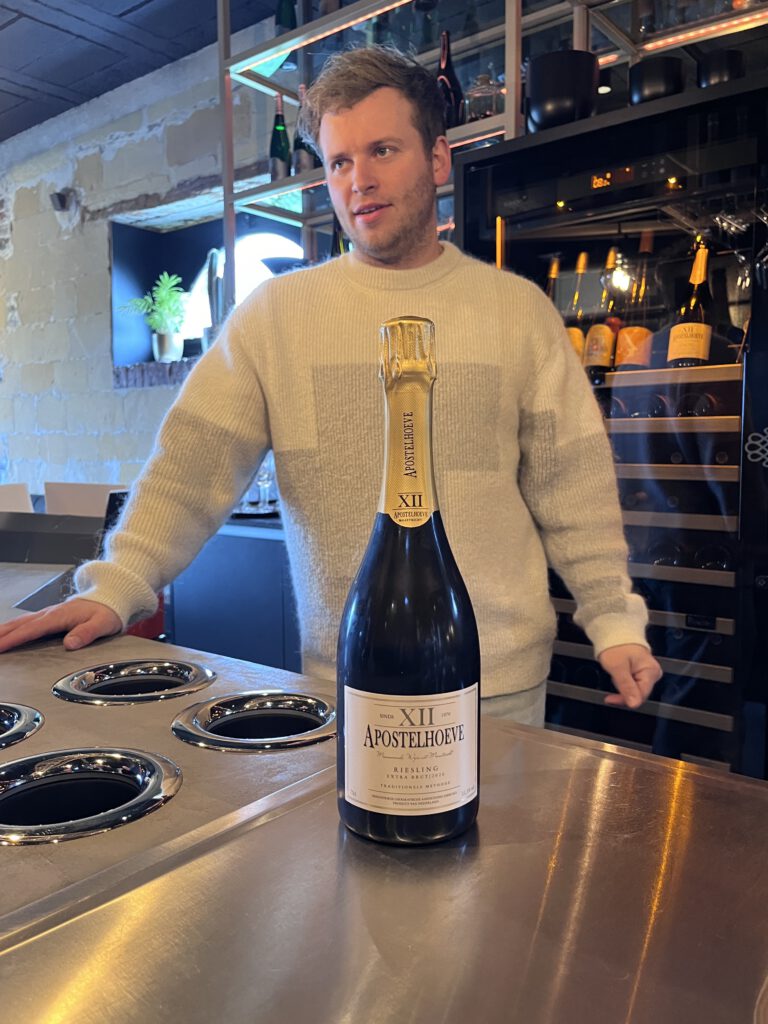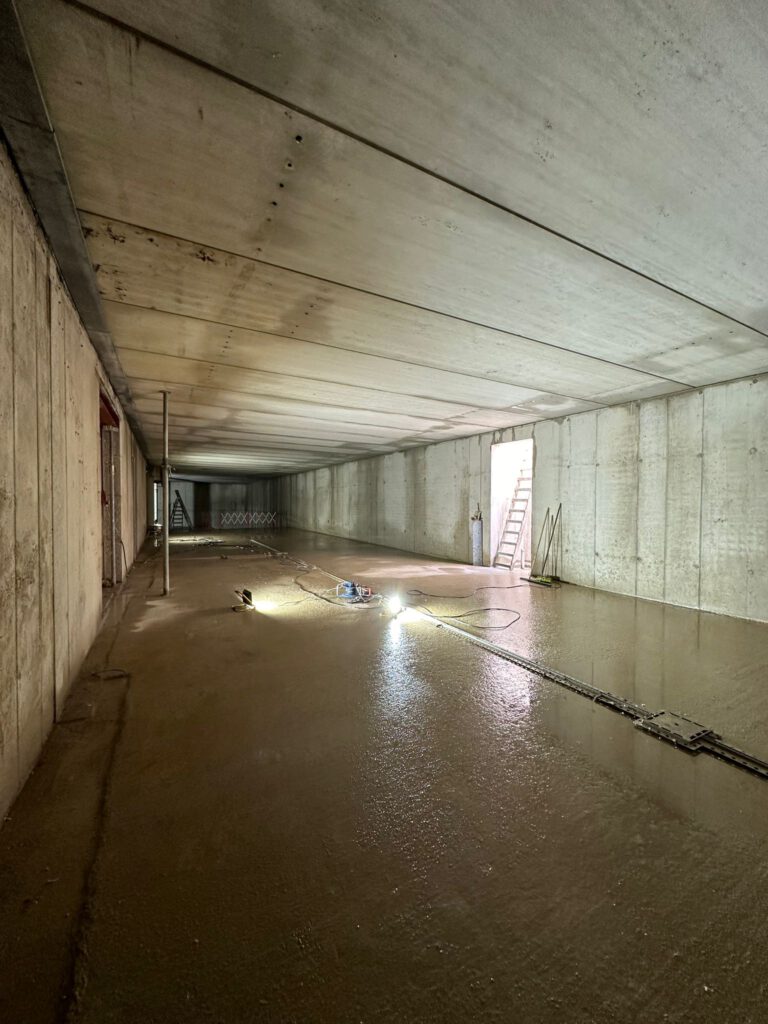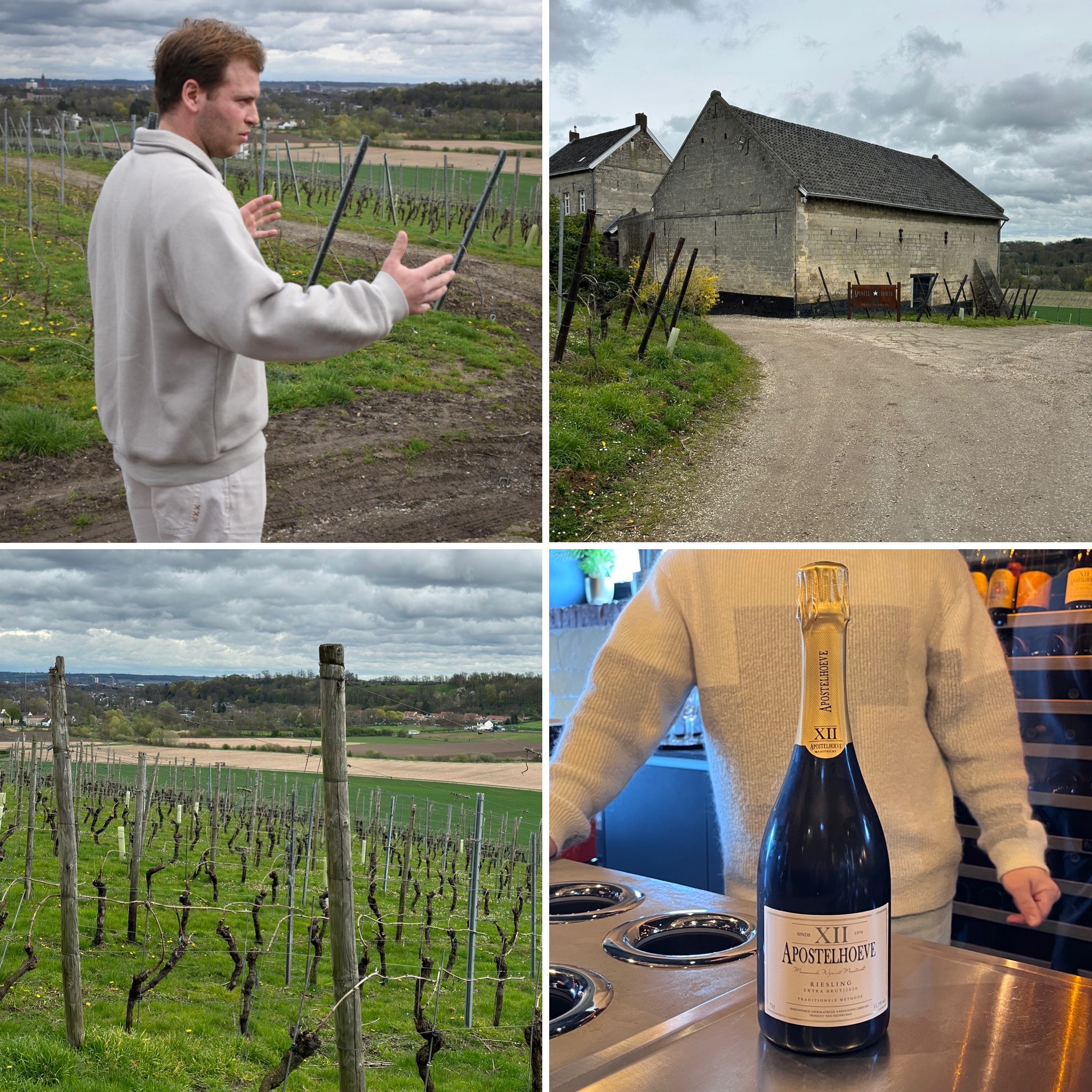From Vine to Glass: Apostelhoeve’s 2023 Vintage.
Apostelhoeve, Defining Modern Dutch Viticulture
Located within the verdant hills of Limburg, the Apostelhoeve Winery is emblematic of Dutch viticultural excellence and a leading figure in the Netherlands’ excelling wine industry. Established on historical vineyard sites, this beautiful estate exemplifies the synthesis of traditional practices with current-day precision in winemaking.
We were thrilled to have been invited to the launch of the 2023 vintage by Robin and Gilbert Hulst from Apostelhoeve, and Christina Janssen from wine importer and retailer Bovino.
Historical Context and Viticultural Revival
The revival of Apostelhoeve as a winery in 1970 by Hugo Hulst marked a pivotal moment in the renaissance of Dutch wine production. The decision to reintroduce viticulture to the slopes surrounding Maastricht was driven by an in-depth analysis of historical precedence and climatic suitability. Initially met with skepticism, the success of Apostelhoeve has been a testament to the foresight of its founders and the adaptable nature of the region’s microclimate.
Terroir and Microclimate
The vineyards of Apostelhoeve benefit immensely from their positioning on south-facing slopes along the Maas river, where the convergence of ample sunlight, moderated temperatures, and a unique soil composition rich in löss and marl create an optimal setting for viticulture. These factors facilitate the cultivation of varietals typically challenging to grow in northern climates, allowing for expressions that are both rich in complexity and distinctly representative of their terroir. 2023 had many extreme weather conditions which made it more difficult to work in the vineyards and made the harvest period a challenging task but the hard work and effort definitely paid off.
Vinification and Varietals
Apostelhoeve’s focus is primarily on white grape varieties, cultivating Müller-Thurgau, Auxerrois, Riesling (since the 70’s), Pinot Gris (since the 80’s), Viognier and Gewurztraminer (since 2018). The winery employs a meticulous approach to vinification, embracing both modern techniques and traditional methods to enhance the varietal characteristics. Each wine is a study in balance and refinement, showcasing the potential of Limburg’s terroir. Notably, their Müller-Thurgau has garnered international praise for its nuanced floral and fruit-driven profile, serving as a benchmark for this varietal within the region. The biggest part of their production consists of white wines, but they also produce a small batch of sweet and sparkling wines, with some new wines still being under development.

Sustainability and Environmental Management
Apostelhoeve is committed to sustainable viticulture, employing practices that ensure environmental stewardship and promote biodiversity. This includes organic fertilization methods, judicious water management, and strategic canopy management to optimize vine health and fruit quality. These practices not only underscore Apostelhoeve’s commitment to sustainability but also enhance the quality of their wines.

The Wine Selection
During our visit we had the opportunity to taste and review six wines (five white still wines and one sparkling wine). Below our findings.
Müller-Thurgau 2023
Also known as Rivaner, this light fresh crisp white wine will serve best as an aperitive. This is the lightest wine of the Apostelhoeve series and has delicate aromas of daisies and Muscat without having the sweetness of Muscat.
Auxerrois 2023
The King of the famous Limburg white gold: the Asparagus. One of the best wine-food pairing that you will find from Dutch soil. The aromas of the white grape, lemon peel and apricot go greatly with the earthy savory flavor of the white asparagus.

Cuvée XII 2023
The favorite of the Maastricht locals, a fine blend of Mülller-Thurgau, Pinot Gris and Riesling. Every year the percentages change according to a secret family formula which finalize into a gastronomic wine that pairs with a wide variety of dishes. The Pinot Gris defines the exotic character of the wines by adding mango, lychee and pineapple while on the other side the wine being elegantly floral.
Riesling 2023
This mineral Riesling expresses itself with Granny Smith, Reine Claude, some pear, apricot, cardamom, and floral nuances. Fresh yet juicy taste, unusually full-bodied for Apostelhoeve, thanks to the ripe vintage. Slight sweetness, a juicy and ripe flavor, and a long finish. A delightful Dutch version of Riesling that provides both palate pleasure and culinary potential. Ready to enjoy now but can also be aged for several years. When aging the crispy Granny Smith turns into candied fruit and petrol.
Viognier 2022
2022 was the first year Viognier was harvested and there were 1,800 bottles produced, in the future it will be possible to produce over 7000 bottles of this Viognier. What’s extra special about this wine? It’s the first Viognier planted on Dutch soil! Because of the shift in climate change its possible to produce amazing wines made from the Viognier grape in the Netherlands. The 2022 vintage is aged in 50% RVS and 50% French oak (new oak from Burgundy) and has malolactic fermentation.

Riesling Extra Brut 2020
To top this amazing tasting of we got to try the Riesling Extra Brut 2020, which lays on the lies for 36 months. This is still a work in progress and only 1,300 bottles have been produced and can only be bought at the shop at the vineyard. While tasting it we were directly in love with its delight, elegant and playful character of the wine and can’t wait to see what the future holds for sparkling wines from Apostelhoeve.
Limburg’s Terroir: A Promising Landscape for Future Winemaking Success
With continuous innovations and a commitment to quality, Apostelhoeve is poised to remain at the forefront of the Dutch wine industry. The estate is actively engaged in exploring new varietals and techniques to further elevate the profile of Dutch wines on the global stage.

Apostelhoeve Winery not only symbolizes the revival of historic vineyards but also stands as a beacon of modern viticulture in the Netherlands. Through a blend of traditional wisdom and innovative practices, Apostelhoeve continues to craft wines that are a true expression of Limburg’s unique terroir, paving the way for the future of Dutch winemaking. Especially with their recent building of the new extended wine cellar, Apostelhoeve will be able to storage over 400.000 bottles of wine.
By introducing the first Dutch Viognier, the first sparkling wine of their assortment, Apostelhoeve has a bright future ahead and we can’t wait to see how the Hulst family will develop and produce their wines to write more Dutch Wine History.
This article is written by our own Nadine Massen. We would like to thank Apostelhoeve and Bovino for the great afternoon and excellent organization and wines. The mentioned wines are available through Bovino directly (online or via their store in Maastricht center) or associated retail and hospitality partners.

